Cars are problematic
Since the advent of the automobile, we have been building cities around cars and as a result placed pedestrian and cyclists at the backseat. The automobile indeed has its advantage of comfort and efficiency, but it has overtaken our landscape and our lives, with disadvantages outweighing it’s advantages.
Future mobility landscape
This idealistic projected scenario takes the basis and inspiration from the rising trends of a sharing economy and autonomous vehicles. The creation of walkable cities warrants large changes to the urban landscape. for the automobile takes up too much urban space which total up to an astounding amount. Thus, the reversal of urban scars that the automobile has scarred our landscape will involve a huge amount of effort.
Recalibrating and reclaiming mobility space
It is time for us to rethink and recalibrate our relationship with automobiles, reclaim our streets to create car-free walkable cities and live healthier and more vibrant lives. It is vital that we reimagine a new transportation landscape, where it is an ideal scenario of 100% shared autonomous vehicles, and 0private vehicles which allows for a maximum possible amount of freed up car space. Only by envisioning and embracing this scenario can we slowly change our perception and relationship with the automobile and create truly walkable cities.
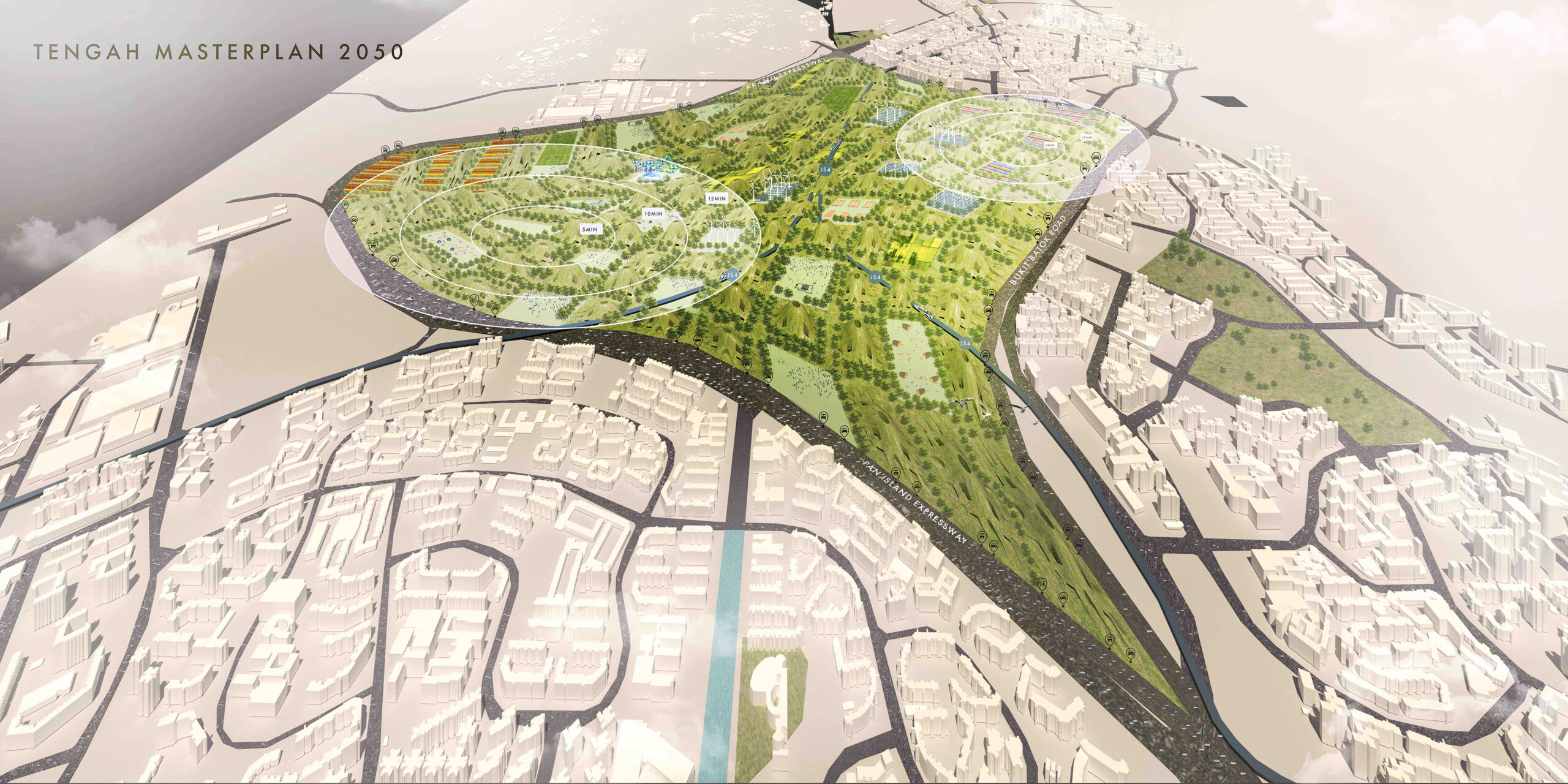
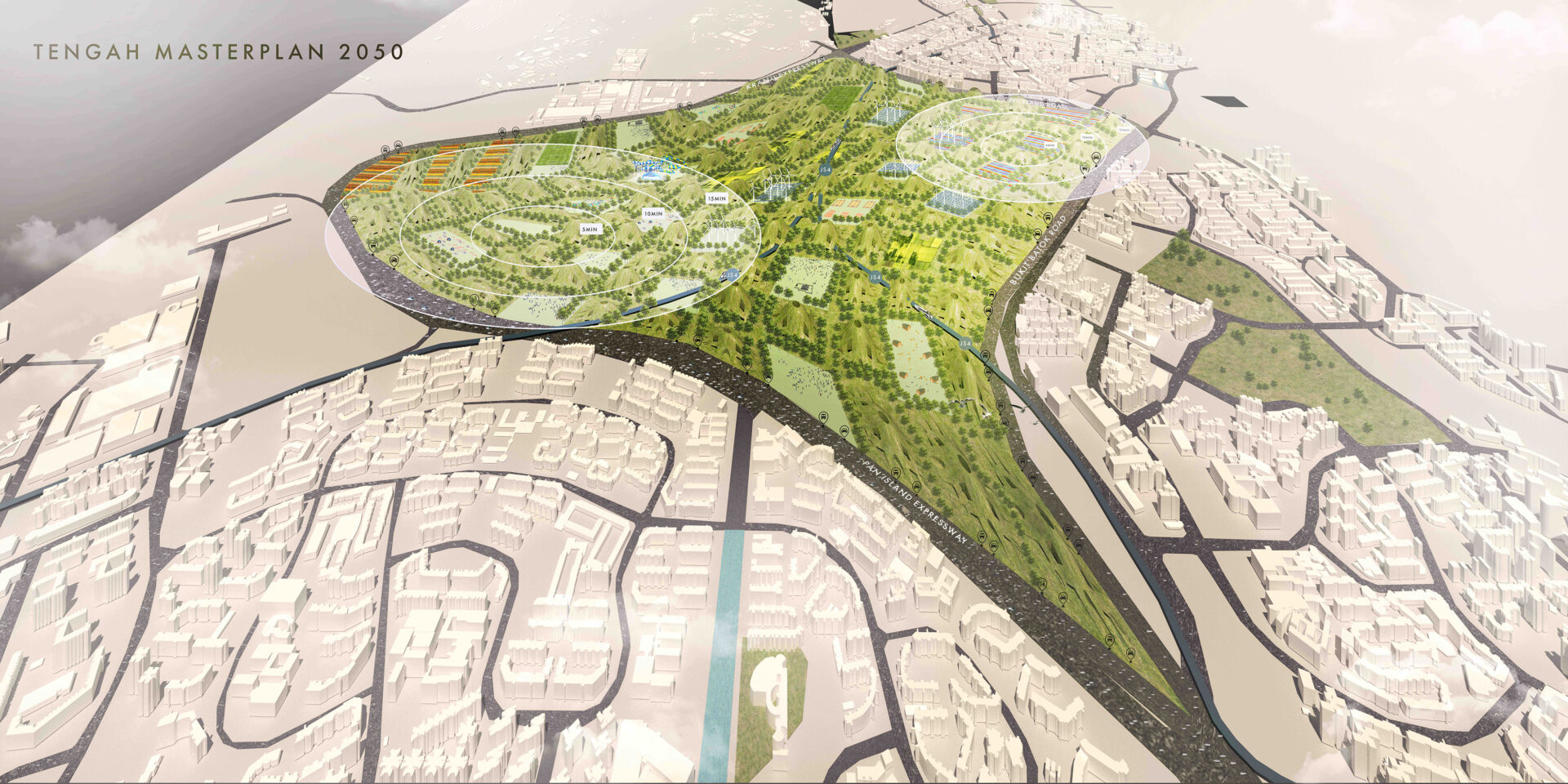
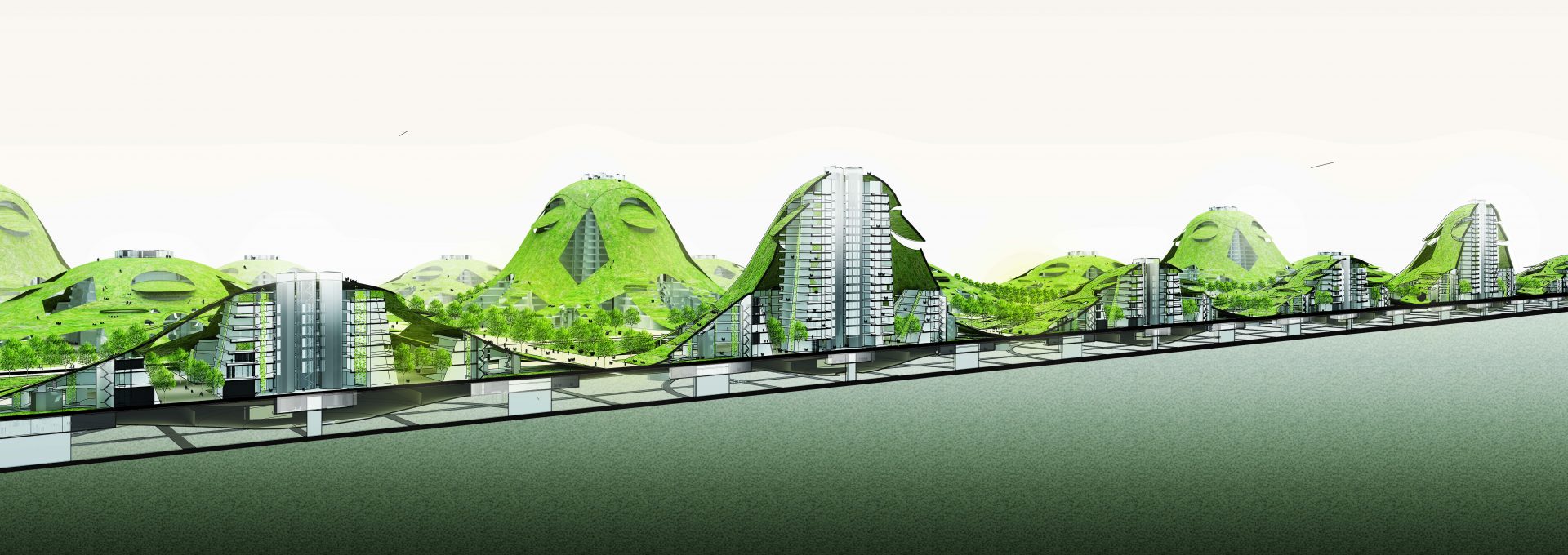

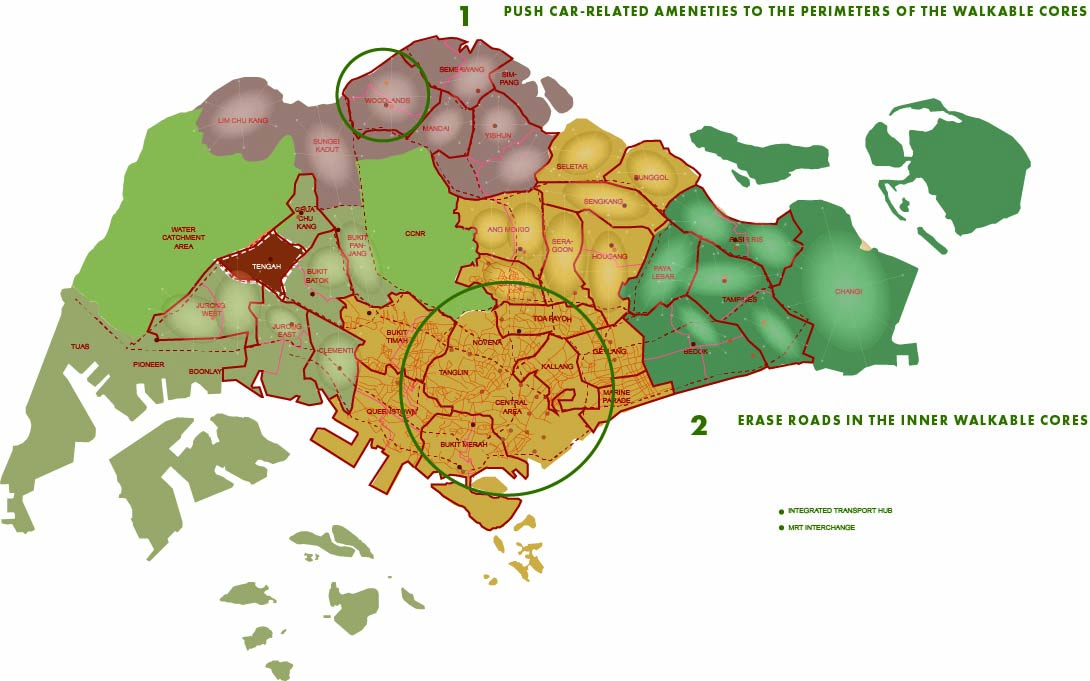
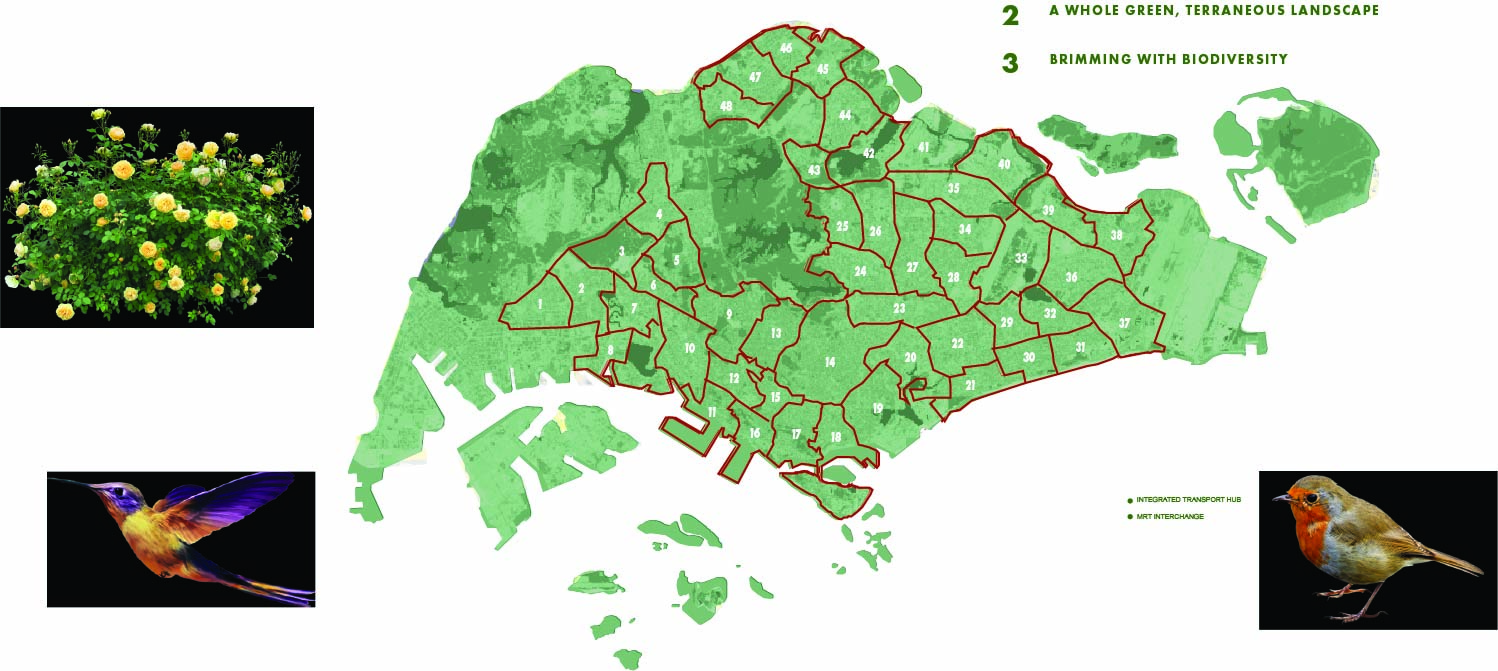

Supervisor's comments:
Kong Wai Yee’s thesis vision reminds me one of the important recent architectural discourse: environmentalism, which positions nature not as contra-notion of architecture, but to be a part of it. Based on the projection of the increasing sharing economy, her visions of 360 Green Surround, which looks like a series of recreational hills is something to be adored in high-density urbanism in Singapore. The scales and scopes of her thesis is perhaps too ambitious to develop the details of ‘hills’ build up architecturally though. Kong Wai Yee has strong interpersonal and communication skills which may enable her to lead exciting interdisciplinary projects in future.
- Assoc. Prof. Shinya Okuda